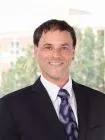In an unanimous decision, the U.S. Supreme Court issued its opinion in Alice Corp. v. CLS Bank Int'l., finding that the computer-implemented method and system patent claims at issue were invalid as being directed to patent ineligible subject matter (under 35 U.S.C. § 101). The basis for finding the patent claims invalid was a determination that the claims were directed to an "abstract idea." Regrettably, the "Supremes" sang their same old tune and failed to define, the term, "abstract idea." Like a broken record and like so many recent opinions, the Supremes instead relied on the tried and true precedent first articulated by U.S. Supreme Court Justice Potter Stewart when determining when material is obscene, we know an abstract idea when we see it, therefore "we need not labor to delimit the precise contours of the 'abstract ideas' category in this case." Interestingly enough, the definition of an "abstract idea" was discussed during oral arguments, but the Court refused to adopt the Solicitor General's definition of a claim directed to an abstract idea as "a claim that is not directed to a concrete innovation in technology, science, or the industrial arts...abstract in the sense that it is not a concrete innovation in the traditional realm of patent law."
While not exactly a welcomed decision, the outcome in the case was consistent with prior U.S. Supreme Court cases and consistent with my first hand observations and predictions after hearing the oral augments in this case as previously reported in our article entitled, "Eyewitness Insights on Arguments Heard by the U.S. Supreme Court on the Patentability of Computer Implemented Methods." The specific question before the Supreme Court was whether computer-implemented inventions, including claims to computers/computer systems, software, and processes are eligible for patent consideration. (See. e.g. footnote 2, page 2 of the opinion for a representative method claim and our prior OP-IP blog post, "Déjà vu all over again..." for a representative system claim).
In reaching its decision, the Supreme Court extended its two-step analysis test for determining patent eligibility of patent claims announced in the biotechnology case of Mayo v. Prometheus. Thus, the test for patent eligibility under § 101 for computer implemented methods, including business methods, is the same as the test for patent eligibility of biotechnology claims.
Step 1: Is the patent claim directed to one of the three patent ineligible concepts of Laws of Nature, Natural Phenomena or an Abstract Idea, ("LNA")? If no, then the patent claim does not raise a § 101 issue. If yes, then step 2.
Step 2: If the claim is directed to a LNA, does the claim put meaningful limitations on the LNA and/or apply the LNA in a way that limits the LNA, e.g. does the patent claim recites a meaningful application of the LNA so that the claim is not merely the LNA performed in a computer environment, and thereby claims less than the LNA, itself?
Like the prior U.S. Supreme Court cases of Bilski v. Kappos, Mayo v. Prometheus and Association for Molecular Pathology v. Myriad Genetics, Inc., we now have a fourth example of patent claims which are not patent eligible. Regrettably, in recent years, we have not had a case in which patent claims were held to be valid under §101. Therefore, it remains a challenge for patent practitioners to know what the U.S. Patent Office and the courts, all the way up to the Supreme Court, will find to be patent eligible. While each decision makes it more clear as to what is not patent eligible, we still do not have clear vision on what patent claims are absolutely patent eligible.
In addition, since Court refused to define the term, "abstract idea," we do not know how to analyze a patent claim to determine whether a patent claim is directed to an "abstract idea."
For more in-depth legal analysis of the issues in the case and possible ramifications, please see our article entitled, "Supreme Court Finds Computer Implemented Method and System Claims patent-ineligible as directed to the abstract idea of a "Fundamental Economic Practice."
The content of this article is intended to provide a general guide to the subject matter. Specialist advice should be sought about your specific circumstances.
